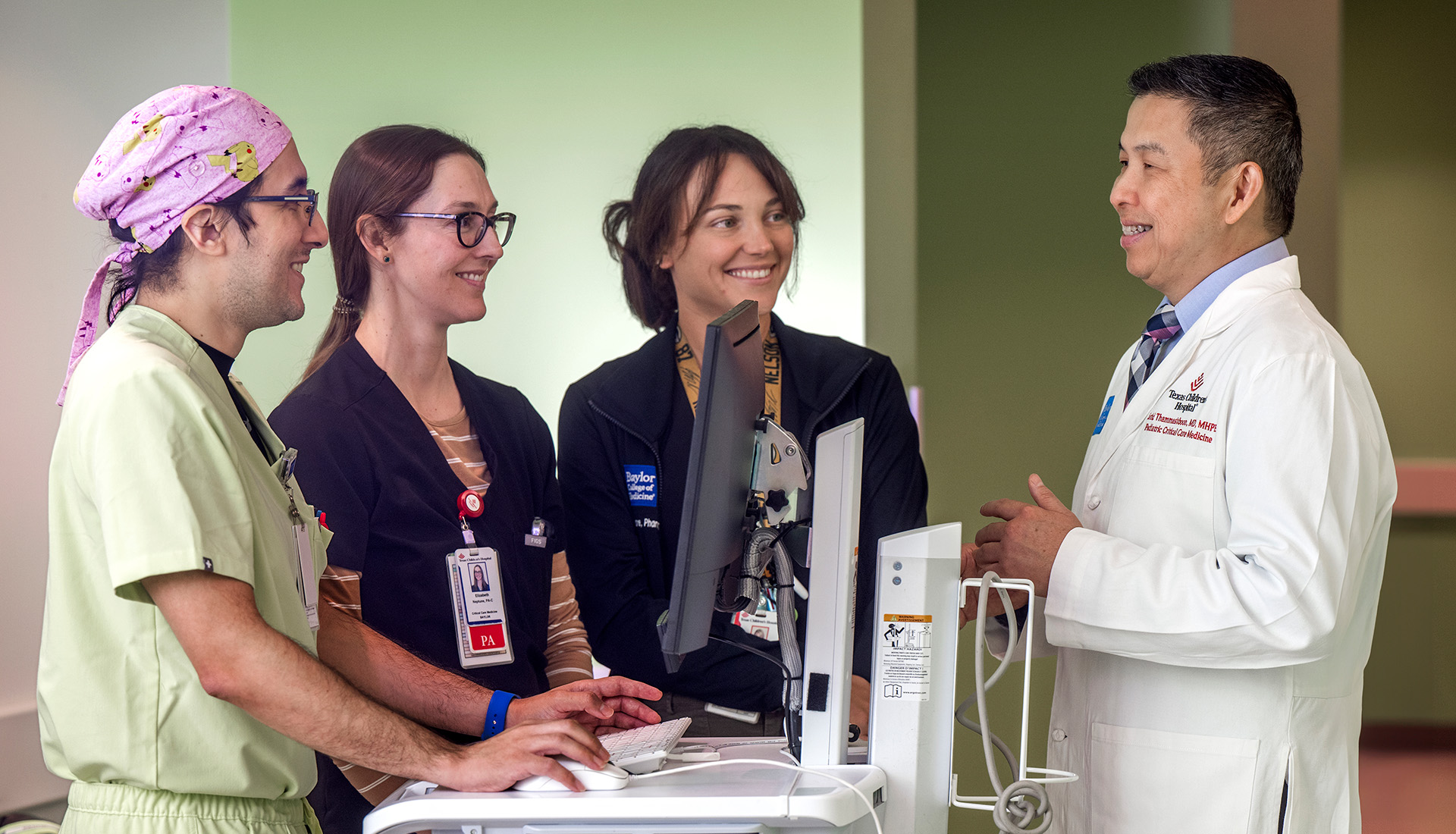

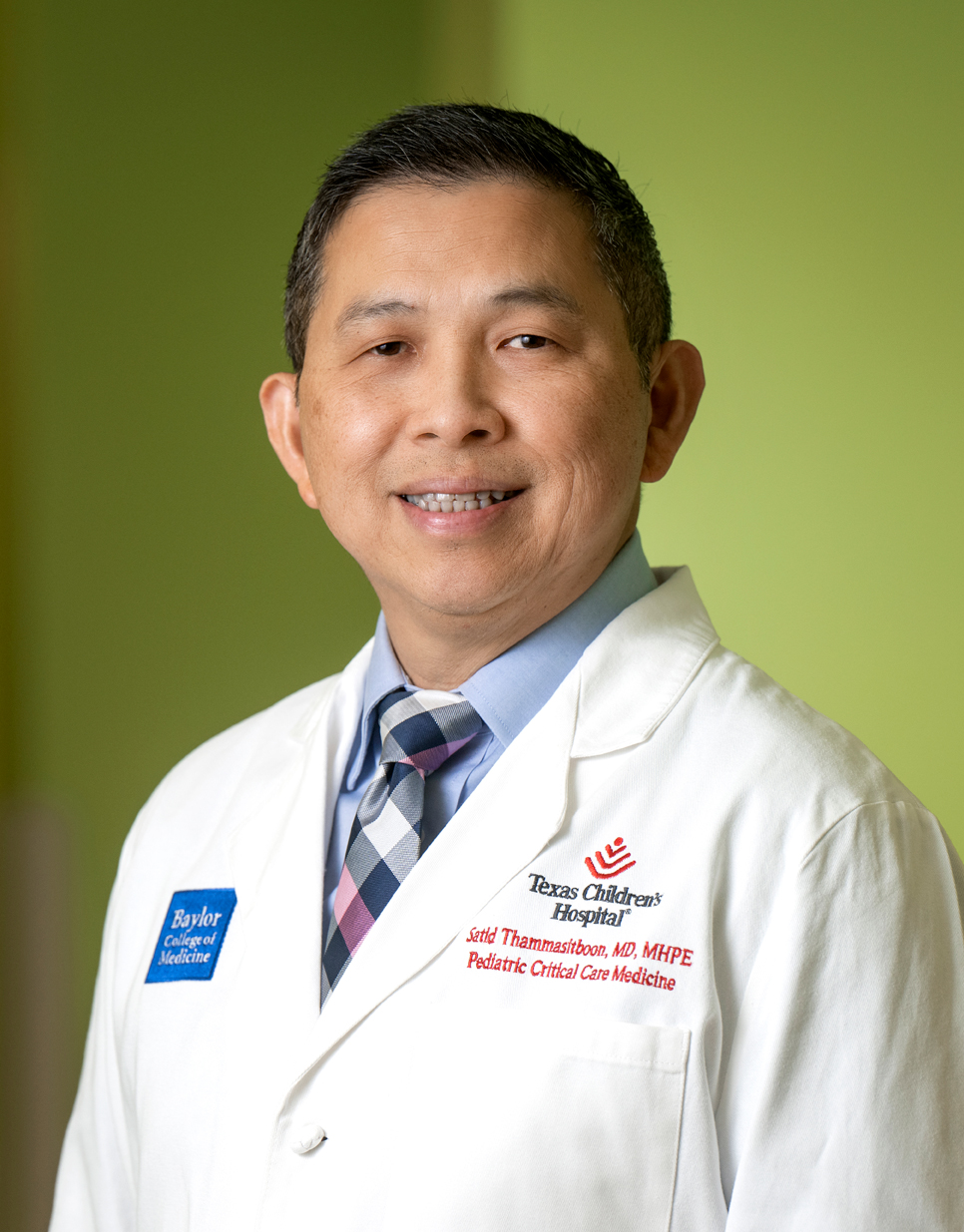
The word “critical” has more than one meaning in the work of Satid Thammasitboon, MD, MHPE.
First: As a critical care physician, he cares for children in critical condition — those requiring urgent attention to avoid worsening illness and death.
Second: He engages in and supports critical analysis, evaluation and reasoning.
Third: He addresses issues of critical importance, ensuring the highest priority is given to the most impacful aspects of patient care.
“The critical nature, quick decision-making and complexity of the inpatient medical condition were interesting aspects of medicine to me, and I felt that pediatric intensive care fit me the most,” said Dr. Thammasitboon, who joined the Baylor faculty in 2004 after completing a Pediatric Critical Care fellowship at Texas Children’s Hospital. He is now Associate Professor of Pediatrics, in the Division of Critical Care Medicine at Baylor and Attending Physician in Critical Care at Texas Children’s.
Dr. Thammasitboon also serves as Director of the Center for Research, Innovation and Scholarship in Health Professions Education (CRIS) at Texas Children’s where he conducts research on, implements and shares methods to foster critical thinking skills in health professionals — skills that are crucial for accurate diagnoses.
Teri Turner, MD, MPH, Med, CRIS Founding Director and Professor and Vice Chair of Education in the Department of Pediatrics, refers to Dr. Thammasitboon as “one of the most brilliant medical education minds out there who knows the educational literature and is very knowledgeable about the future of medical education.”
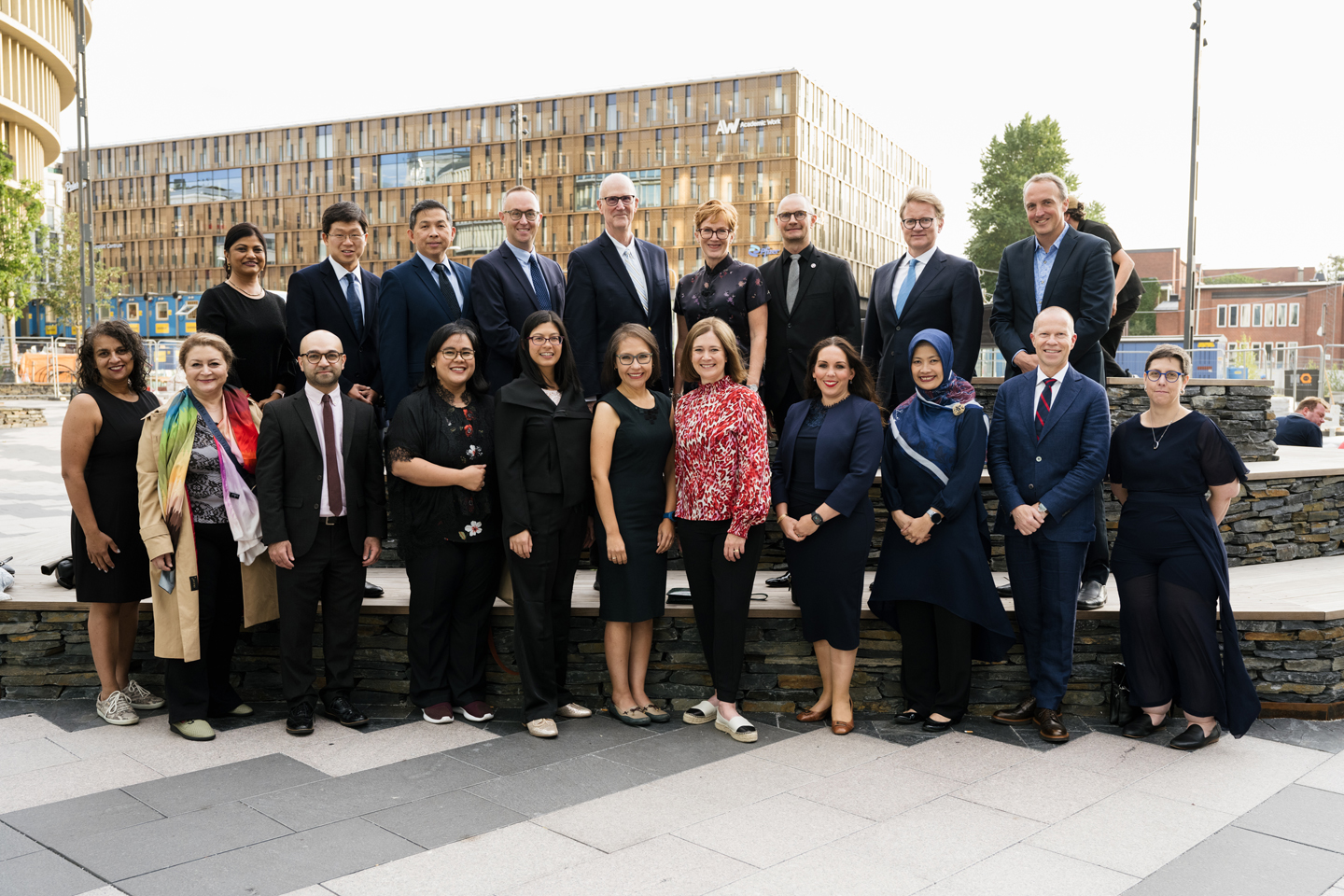
Dr. Thammasitboon believes that content expertise alone is insufficient for patient care and that to be effective, health professionals must have excellent interpersonal and communication skills. “Imagine if I, as a physician, had suboptimal interpersonal or communication skills,” he noted. “I would likely struggle to gather relevant information from patients and their families.”
“Without optimal education, there would be many diagnostic and management errors that not only harm the patient physically, but also cause emotional and financial harm,” he continued. “All academic institutions need to value education as well as clinical care and research. These three pillars have to go hand in hand.”
After growing up in Thailand, Dr. Thammasitboon and his four siblings each entered careers in health care. He earned his medical degree at Prince of Songkla University Hospital in Thailand, then chose a program at the University of Illinois at Chicago (UIC) that combined a pediatric residency with a program leading to the Master of Health Professions Education (MHPE). The MHPE program at UIC was the first in the United States and prepares clinicians to be education leaders by focusing on:
Dr. Thammasitboon is confident that dependence on lectures for core education is decreasing and embraces leveraging technology to allow learners to study independently at their own pace and come to class to interact and learn problem-solving skills.
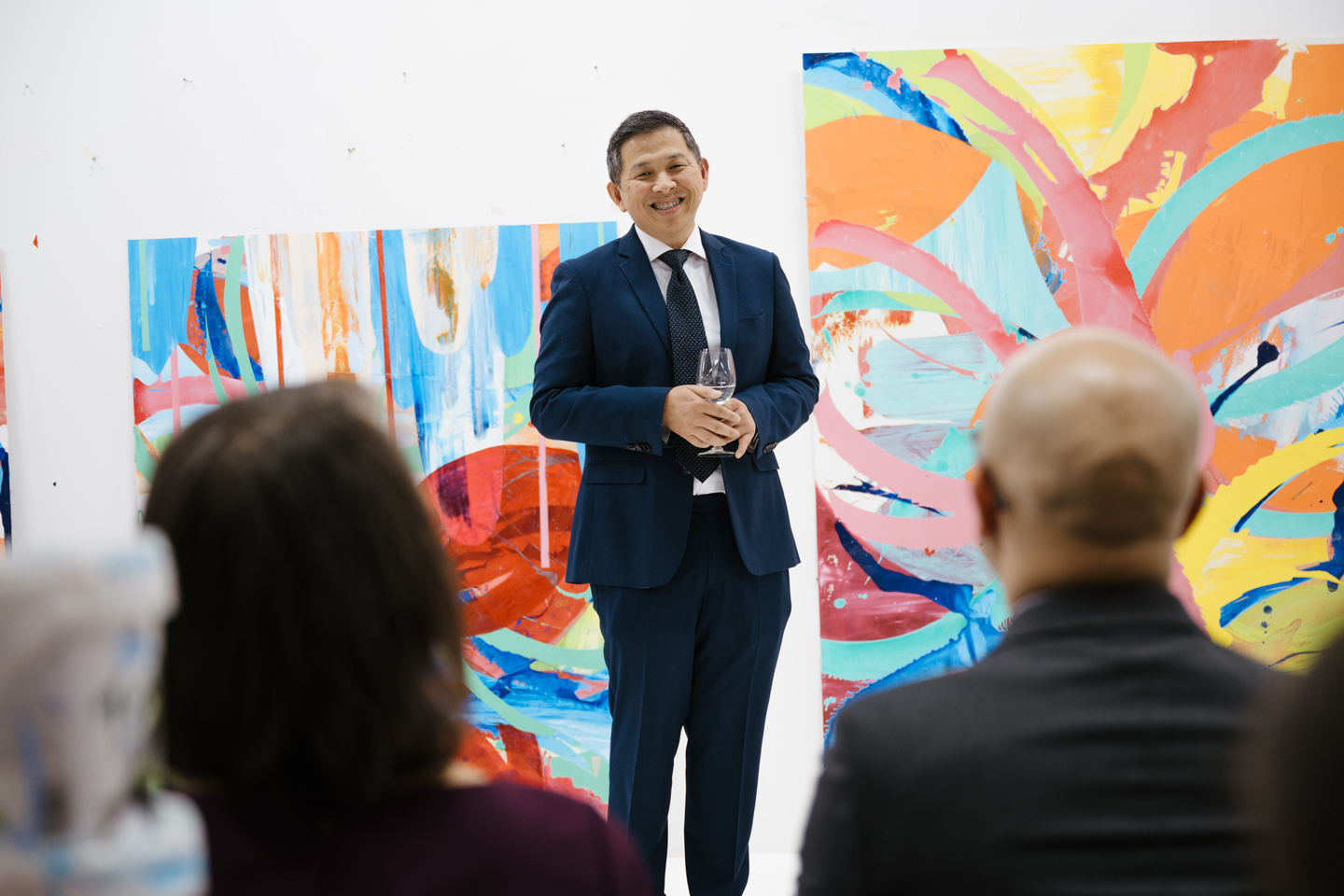
“I think everyone is still trying to figure out the optimal way to blend all these modalities together and optimize in-person for high-level learning while moving content learning outside the classroom,” he said.
”In the near future, the precision of artificial intelligence will continue to get better,” he predicted. “In some areas, it has already amplified learning. The back and forth between human and artificial intelligence will generate something more creative, something that content experts themselves would not have been able to generate. That will transform education, transform medicine and transform biomedical research.”
Believing that no one can advance their career alone, Dr. Thammasitboon has led the formation of “communities of practice,” small groups of scholars or educators who work together on particular areas of interest — cross-pollinating ideas and synchronizing activities within and across groups.
Dr. Turner praises Dr. Thammasitboon for maintaining the initial values of CRIS to help the faculty succeed and, at the same time, expanding the scope of CRIS from medical education in the U.S. to health professions education globally.
“Collaborating and getting groups together around mutual interests – communities of practice – was a wonderful way to grow the center,” she said. “He’s taken a more global initiative where it’s not just about us learning from each other; it’s us learning from the larger community.”
Dr. Thammasitboon began expanding CRIS globally by working with CRIS Associate Director Diane Nguyen, PharmD, Associate Professor of Pediatrics and Education, Innovation and Technology at Baylor. They invited participants from Baylor-Texas Children’s Global Health programs to participate in projects and conferences as part of the Global Health Scholarship Committee of Practice. Originally focused on sub-Saharan Africa, Eastern Europe and Latin America, what they now call the network of practice has expanded to include other countries in East Asia, Southeast Asia and Africa.
”We felt that if we could gain leverage, expertise or insight from a larger number of participants, especially those from other parts of the world, our dialogue would be richer and more meaningful,” Dr. Thammasitboon said. “There’s so much to learn from other programs and countries.”
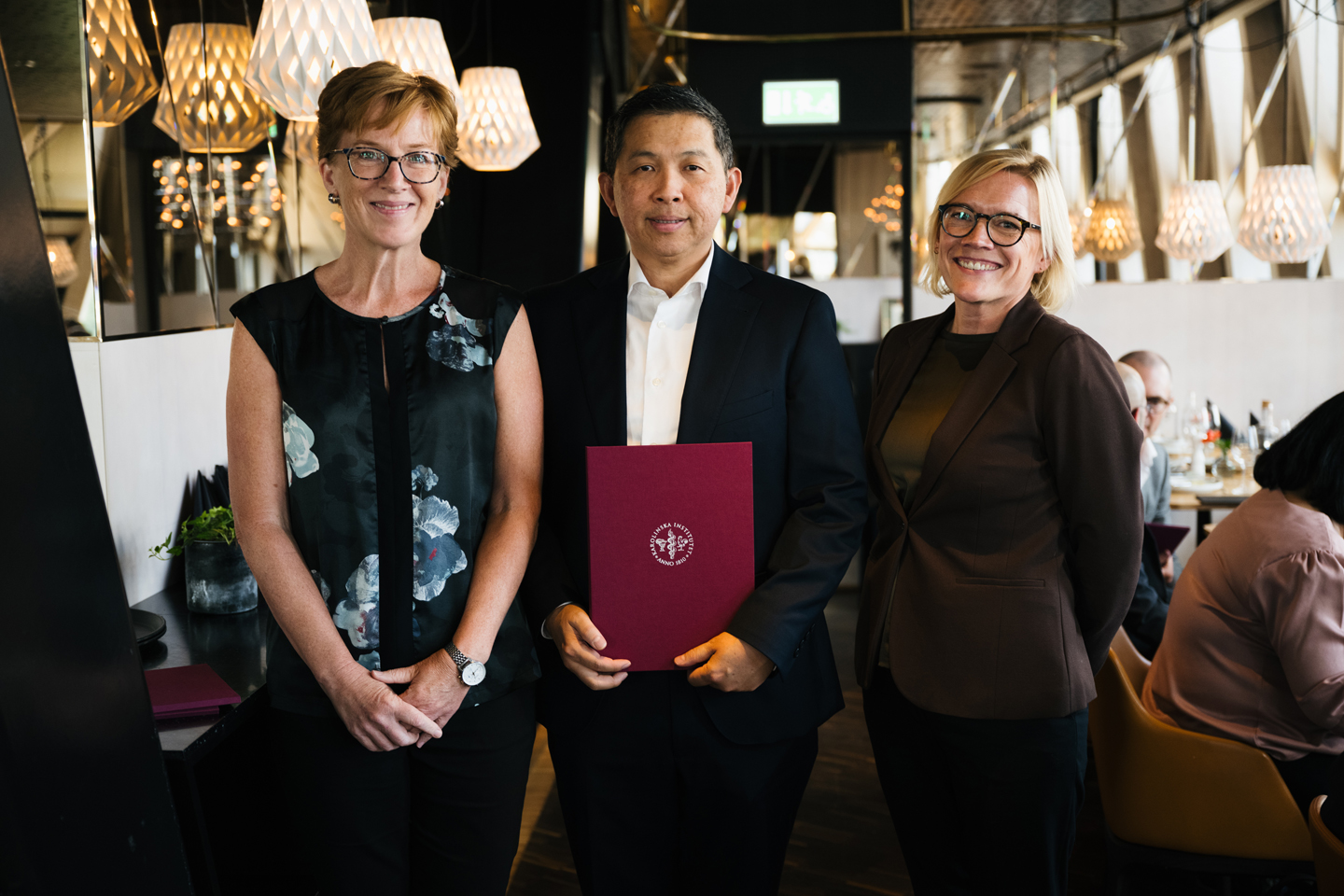
Dr. Thammasitboon’s global outreach was a factor in his selection as a 2023 Karolinska Institute Prize for Research in Medical Education (KIPRIME) Fellow. He was one of 15 medical education researchers worldwide selected to participate in a three-day curriculum of mentoring, development and networking as candidates for the following year’s KIPRIME. A research-led medical university, the Karolinska Institute in Sweden annually hosts the Nobel Assembly that awards the Nobel Prize in Physiology or Medicine.
As Director of CRIS, Dr. Thammasitboon sees his role as being a knowledge broker, making an effort to bridge the gap between knowledge and practice.
“In education and in biomedical research, a piece of knowledge means nothing if you cannot apply it into practice,” he said. “The knowledge-practice gap is especially pertinent to medical education because our faculty and staff have gone through extensive training to be clinicians. When we talk about education, we need to make sure that we offer professional and faculty development that empowers them to put things into practice.”